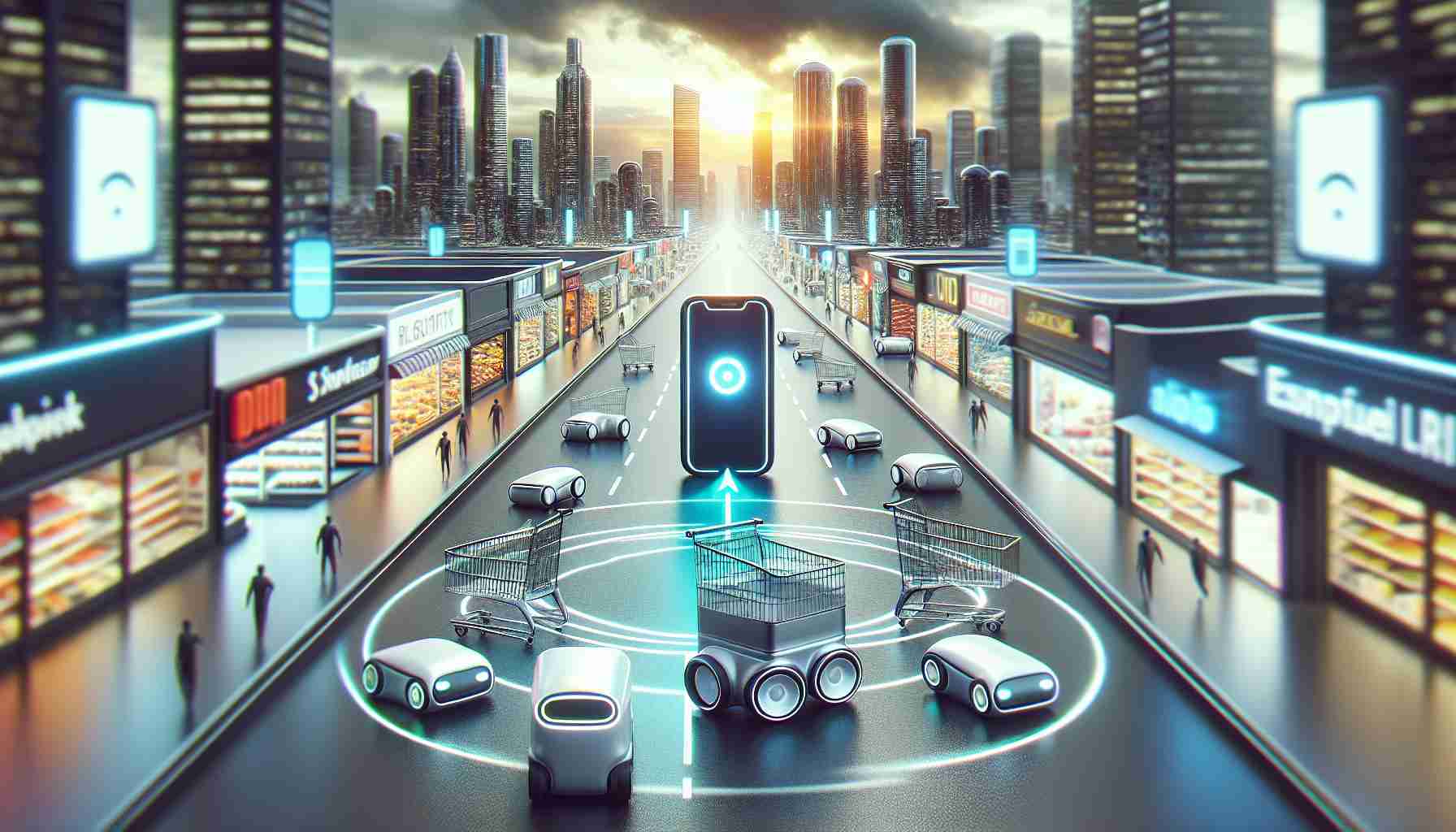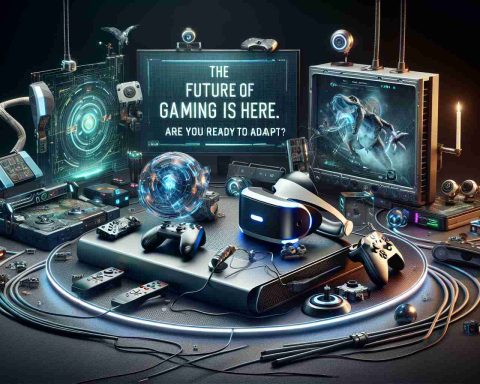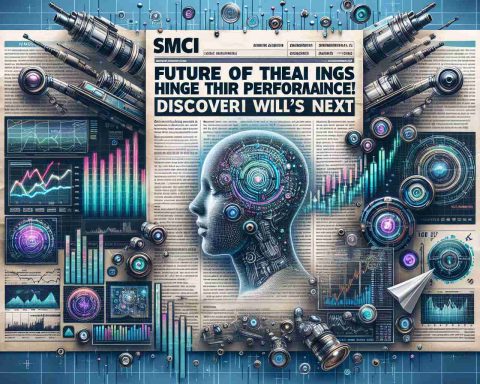The Evolution of Shopping
This year’s National Retail Federation (NRF) trade show spotlighted the transformative impact of artificial intelligence (AI) on the retail landscape, attracting around 40,000 industry leaders and tech innovators to New York City’s Javits Center. Retail executives gathered to explore the potential of AI after experiencing its influence during last holiday season’s unprecedented shopping trends.
With a surge in interest, the conference offered numerous presentations dedicated to the application of AI in retail, particularly focusing on agentic AI — intelligent agents designed to enhance customer service and streamline employee tasks.
The keynote address featured Walmart’s U.S. President engaging in a deep discussion with NVIDIA’s leader on AI initiatives, highlighting groundbreaking technology aimed at creating AI-powered digital assistants for retailers.
Amidst the euphoria, data from Adobe Analytics revealed astonishing gains, with visits to retail sites via generative AI chatbots skyrocketing by 1,300% this season. A staggering 70% of consumers who utilized these AI tools felt their shopping experience improved.
Furthermore, a recent NVIDIA survey illustrated a growing trend, as 89% of retailers are already employing AI or testing its capabilities, while 97% anticipate increasing their AI budgets in the coming year.
Adobe also unveiled innovations at the event, including an AI tool designed to simplify the production of extensive digital content, letting retailers meet rising content demands with greater efficiency. As AI continues to evolve, retail is gearing up for a future that promises enhanced personalization and operational efficiency.
The Future of Shopping: AI’s Transformative Role in Retail
The evolution of shopping is not just a reflection of changing consumer preferences; it also demonstrates the profound impact that technology, particularly artificial intelligence (AI), has on various sectors, including the environment, humanity, and the global economy. As highlighted in the National Retail Federation (NRF) trade show, the integration of AI into retail is reshaping how we shop and interact with businesses, paving the way for a more personalized and efficient shopping experience.
The surge of AI in the retail sector has implications that reach far beyond consumer convenience. One significant impact is the potential for reducing environmental footprints. AI systems can optimize inventory management by predicting demand more accurately, thereby minimizing excess production and wastage. This efficiency not only conserves resources but also diminishes the environmental burden associated with overproduction, excessive shipping, and landfill waste.
Humanity stands to benefit as AI tools become more sophisticated, offering personalized shopping experiences that align with individual values, such as sustainability. For instance, AI-driven platforms can suggest eco-friendly products and provide transparency about sourcing and manufacturing processes, empowering consumers to make informed choices that reflect their ethical standards. This fosters a deeper connection between consumers and brands, encouraging responsible consumption trends that prioritize planetary health.
Economically, the economic implications of adopting AI in retail are significant. The NRF reports a vast number of retailers adopting AI technologies, with an overwhelming majority planning to invest even more in AI capabilities. This shift can lead to job displacement in certain areas, particularly roles focused on routine tasks. However, it also opens up opportunities for new job categories focused on AI oversight, creative problem-solving, and customer engagement. Adapting to this changing job landscape will be essential for the workforce to thrive in an increasingly automated world.
Moreover, AI’s role in enhancing efficiency can lead to lower prices for consumers. As retailers optimize operations and enhance promotional strategies through data analytics, costs may decrease, making products more accessible to a broader audience. This democratization of shopping aligns with a future where technological advancements can bridge the gap between different socioeconomic groups.
Looking towards the future, the influential role of AI in retail has the potential to shape not only shopping habits but also broader societal dynamics. As consumers become more informed and demand greater accountability from brands, the retail landscape will likely see a shift toward a more sustainable and ethically-driven economy. Retailers that invest in AI are not just improving customer experiences—they are also poised to lead a movement toward responsible business practices that prioritize environmental sustainability and social equity.
In conclusion, the evolution of shopping through AI not only signifies a change in consumer behavior but also heralds a new era where technology can align with environmental stewardship, equitable economics, and enhanced human experiences. As we move forward, the implications of this transformation will shape the future of retail, encouraging a world where progress benefits both humanity and the planet.
The AI Revolution: Transforming Retail Shopping Experience
The Evolution of Shopping
The retail landscape is witnessing an unprecedented transformation, primarily driven by advancements in artificial intelligence (AI). The recent National Retail Federation (NRF) trade show underscored this evolution, bringing together around 40,000 industry leaders and technology innovators in New York City. This gathering was particularly timely, considering the notable changes in consumer shopping patterns during the last holiday season, largely influenced by AI capabilities.
Current Trends in AI Adoption in Retail
A significant focus of the conference was on agentic AI, which refers to intelligent agents that enhance customer service by providing personalized support and efficiently managing employee tasks. The integration of such technology is revolutionizing how retailers interact with customers and streamline their operations.
Recent data from Adobe Analytics highlights the dramatic shift in retail dynamics — visits to retail sites that utilized generative AI chatbots soared by an astonishing 1,300%. Furthermore, 70% of consumers reported an enhancement in their shopping experiences attributed to these intelligent tools. This statistic points to a substantial shift in consumer expectations, with shoppers increasingly valuing AI assistance during their purchasing journeys.
Industry Insights and Future Predictions
The NRF event featured notable discussions, including a keynote address by Walmart’s U.S. President alongside NVIDIA’s CEO, centering on groundbreaking initiatives tailored towards retail-specific digital assistants. Such partnerships are indicative of a broader trend where traditional retailers are investing in innovative technologies to meet changing market demands.
According to a recent survey conducted by NVIDIA, 89% of retailers are currently utilizing AI technologies or are in the process of testing them. This trend is set to escalate, as 97% of these retailers plan to increase their AI budgets in the ensuing year, aligning with the continuous expansion of AI’s role in retail.
Innovations in Content Generation
Adobe also showcased its latest AI tool designed to streamline the creation of extensive digital content. This innovation addresses the growing demand for high-quality digital materials, enabling retailers to engage with customers more effectively while improving operational efficiency. As these AI tools evolve, they promise a future filled with enhanced personalization in customer interactions, leading to greater consumer satisfaction and loyalty.
Pros and Cons of AI in Retail
– Pros:
– Enhanced customer service through personalized experiences.
– Increased operational efficiency and productivity for retailers.
– Significant growth in customer engagement via AI-driven platforms.
– Cons:
– The potential for job displacement due to automation.
– Concerns regarding customer data privacy and security.
– The need for continuous investment in technology and training.
Conclusion
As the retail industry continues to embrace AI, the future looks promising, characterized by enhanced customer experiences and optimized operational workflows. The insights gained from events like the NRF trade show will undoubtedly shape the strategies of retailers aiming to harness the power of AI, making it an integral part of their business models.
For more information on the latest trends and innovations in retail, visit NRF.




















